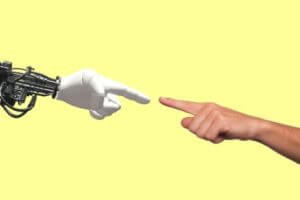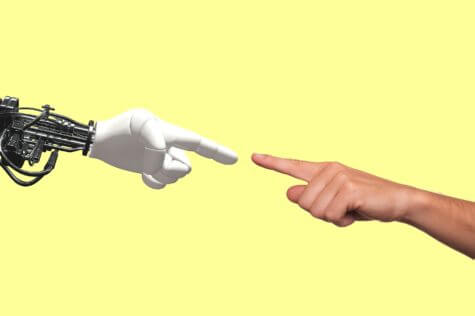HOUSTON — Being highly intelligent may take you far in your profession, but having a great personality to boot may take you even farther as industries turn to robots instead of humans for work, a new study finds.
Researchers say that people who stood out during their high school days academically and also took a liking to the arts and sciences are more likely to keep their jobs should the threat of automation affect their job stability.
The authors turned to a large dataset of 346,660 people from the American Institutes of Research that had examined the personality traits, interests, intelligence, and socioeconomic status of these individuals over the course of 50 years.

Using this data, the researchers “found that regardless of social background, people with higher levels of intelligence, higher levels of maturity and extraversion, higher interests in arts and sciences … tended to select (or be selected) into less computerizable jobs 11 and 50 years later.”
Formal education was found to have comparatively little effect on one’s ability to avoid a career in a field that could be automated, and lead author Rodica Damian expressed that the current infrastructure of higher education may be ill-equipped to handle future changes in the job market.
“Perhaps we should consider training personality characteristics that will help prepare people for future jobs,”
“Robots can’t perform as well as humans when it comes to complex social interactions,” says Damian, an assistant professor of social and personality psychology at the University of Houston, in a university press release. “Humans also outperform machines when it comes to tasks that require creativity and a high degree of complexity that is not routine. As soon as you require flexibility, the human does better.”
Still, the importance of having elite intelligence should not be mistaken — the study found a 7 percent drop in the likelihood for a job to be automated for every 15-point increase in IQ. That would translate to more than 10 million jobs saved in the United States.
Since IQ can’t be easily improved in an individual, the researchers recommended a number of other interventions that could improve an individual’s skill set or marketability, such as social skills and a good work ethic.
“Perhaps we should consider training personality characteristics that will help prepare people for future jobs,” says Damian. “By preparing more people, at least more people will have a fighting chance.”
The researchers clearly emphasized that humans must capitalize on the skills that they possess which robots do not.
The study’s findings were published in the European Journal of Personality.

Train for personality characteristics? Outside of extroversion, which one of these is a personality trait? “higher levels of intelligence, higher levels of maturity and extraversion, higher interests in arts and sciences”.
Sounds like a poorly interpreted longitudinal study. Good luck training an introvert to be an extrovert.